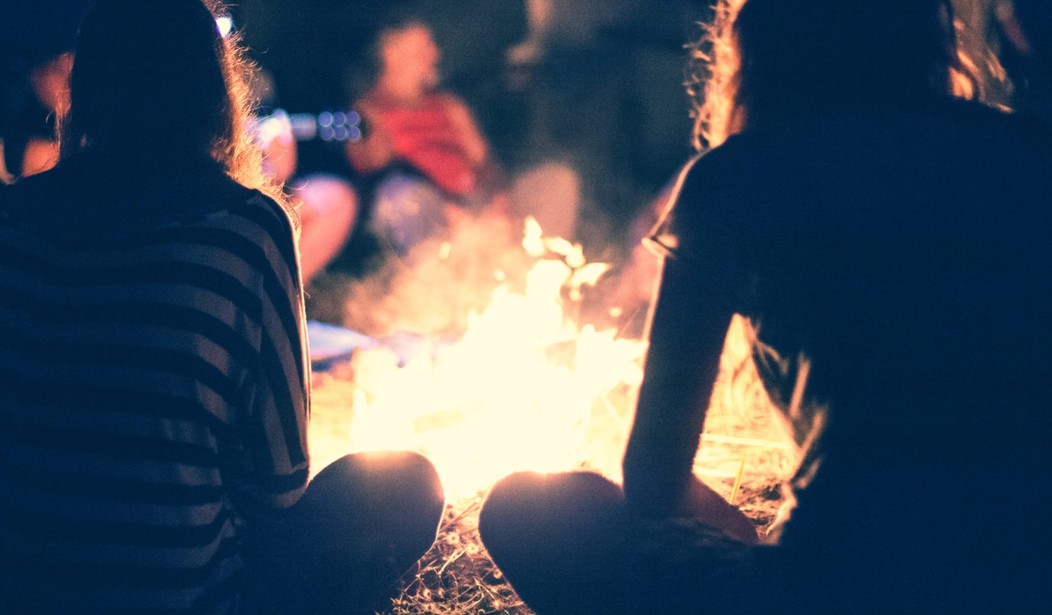“When someone you love dies, you still have to live your life,” reads a little girl from the stage. Her cabin group has made a poster to tell what they’ve learned during their weekend at Camp Erin, a grief camp for children who have lost someone in their immediate family. We parents were seated in rows of the outdoor amphitheater next to the lake as each group took the stage to share their takeaway.
“That one was mine, Momma!” This little tiny girl yelled to us from the stage—except not intentionally to all of us, just to her mom. She’s in that precious, fleeting stage of life where she’s so proud to be the star of her parents’ show, and she’ll probably wave to her mom from the stage at her second grade winter program in a few months. But she can’t wave to her dad, who died of a heart attack earlier this year. That’s why she’s here at Camp Erin.
My son was among the campers this past weekend, this colorful flock of brave children who are too young to know the wisdom they have. On Friday, when we dropped them off, the staff welcomed the children into the weekend by bringing them around the flagpole. Each camper shared their name, the name of the person they are remembering, and how that person died. I kept my sunglasses on because my eyes couldn’t not respond with tears to these little children and their little voices telling us their stories: “My mom died in a car accident,” or “My dad was killed by a drunk driver,” or “My sister committed suicide,” or “My brother died from cancer.”
They’re too young to have to say these things, I thought. And then my son took the microphone and shared his story, that his dad died overnight when my son was three years old. In my listening, I had forgotten for just a moment that he was one of them, one of these children who carries tragedy in his pocket. I forgot there was a reason for him to be there too.It’s one thing to walk my children through their loss, to model grief; it entirely another to trust their hearts to the hands of someone else to hold for a weekend-long experience, to trust others to teach my child how to live with the scars of loss. But Camp Erin came through in great ways. Their grief professionals and trained volunteers scooped my son into their intentional, traditional fun. Once we said goodbye, he was well on his way. He felt immediate camaraderie with his new buddies who were beautifully and tragically just like him. (The whole thing was way harder on me than it was on him. For me, Sunday couldn’t come soon enough.)
Camp Erin is an initiative created and supported by the Moyer Foundation. The program was founded in 2000 by World Series Pitcher Jamie Moyer, whose life was forever changed by the last wish of Erin Metcalf: to meet him in person. In Erin’s name, Jamie and his wife founded Camp Erin, this network of overnight bereavement camps for children and teens ages 6-17 who are living in the aftermath of losing someone they love. Jamie and his wife started Camp Erin in the northwest of the United States, and they have continued expanding the initiative with plans to host a Camp Erin weekend in every Major League Baseball city. We live near Denver, home of the Colorado Rockies, and our Camp Erin took place just an hour away. The weekend is funded by grants and donations, so the experience is free to the campers and their families.
When I picked up my boy on Sunday, he was spilling with things to tell me. He had learned how to canoe without tipping over, how to expertly catch minnows in his hands (the trick is to come from underneath, turns out), and how to roast a marshmallow so it’s exactly the color of a bale of hay instead of a lump of charcoal. But he also learned that being near water clears his mind, and he learned that his feelings at any given moment are a-okay. He found lots of new ways to remember his dad, and he discovered that he’s not alone in being a kid who has learned adult things. He learned how to tell his story in a safe environment, and how to be a good listener when someone is sad. My goodness, these are not small things.
“Death ends a life, not a relationship,” said Mitch Albom in Tuesdays with Morrie. Sometimes, as my son found this weekend, death is the beginning of many new relationships. Camp Erin showed these children their stories matter, their hearts are safe, and they are surrounded by hope and support. Nothing could matter more.
To find out about Camp Erin in a baseball city near you, or to donate to this initiative that’s changing the lives of broken-hearted children, visit the Moyer Foundation.
* * *
Tricia Lott Williford is a remarried widow, a mom to two young men, a writer, teacher, reader, and thinker. Thousands of readers join her each morning for a cup of coffee as they sign online to read today’s funny, poignant stories that capture the fleeting moments of life. She is the author of two books: And Life Comes Back: A Wife’s Story of Love, Loss and Hope Reclaimed; and Let’s Pretend We’re Normal: Adventures in Rediscovering How to be a Family. Tricia collects words, quotes, and bracelets, and she lives in Denver with her new husband and two sons. You can get to know Tricia through her daily posts at tricialottwilliford.com.









Join the conversation as a VIP Member